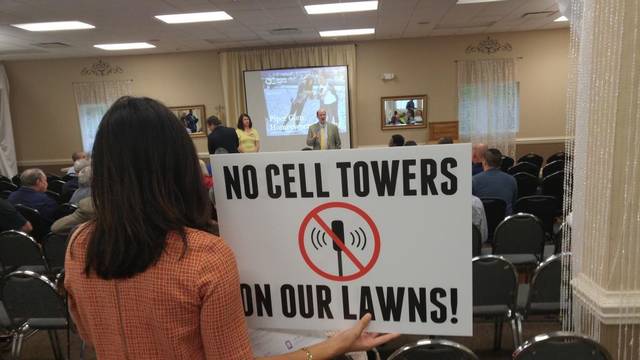 By B.N. Frank
By B.N. Frank
A group of telecom experts who call themselves “The Irregulators” are among the many organizations that have filed lawsuits against the Federal Communications Commission (FCC) for failing to protect Americans from the telecom industry. The good news is that THEY WON! Because of this, state utility commissions are able to divert taxpayer dollars to provide safer high-speed internet via fiber optics.
On a related note, New York City recently won a lawsuit against Verizon and now the company has to install half a million lines of fiber.
Big Telecom and their proponents are NOT excited about municipal broadband. It’s less profitable to them and more affordable to residents. If your community hasn’t considered municipal broadband, be sure to share this information with your elected officials.
From Daily Kos:
The quiet good news of the 2020 elections: Municipal broadband is expanding
The voters in Chicago and Denver overwhelmingly voted for community broadband in a referendum in Chicago that directs the city to “ensure that all the city’s community areas have access to broadband Internet.” It’s a nonbinding resolution, but it gives the city the authority to consider broadband as a utility, potentially allowing for community-run networks. The voters in Denver—83.5% of them—declared the city should be exempt from a 2005 law passed by Colorado that restricts towns and cities from building their own networks. That ALEC-inspired law had a loophole in the case of Colorado, one that lets cities and towns opt out of those restricts if the residents demand it by vote. There are now 140 communities in Colorado that have spurned the law and championed citizen-built broadband.
Christopher Mitchell, director of community broadband networks for the Institute for Local Self-Reliance, told Vice that these votes are instructive. “I think the margin in Chicago and Denver is remarkable,” Mitchell said. “When we work with communities where half the residents have a cable monopoly and the other half don’t have any broadband, the demand for something better is strong among both populations.” Mitchell’s group says that 83 million Americans live in an area subject to a broadband monopoly, with Comcast being the usual culprit. That’s on top of the estimated 42 million who have no broadband access at all and the tens of millions who only have two choices, where again Comcast dominates. “For years, we have said this is a major concern for voters but local leaders remain too intimidated by the big monopoly cable and telephone companies to act on it,” Mitchell said. “Maybe now we will see it taken more seriously.”
This could be the tipping point, though in 22 states it will require repealing those ALEC-inspired municipal broadband bans.
The FCC has been a corrupt and “captured” agency for decades (see 1, 2). The regulatory body refuses to update 24-year-old federal radiation exposure guidelines despite repeated requests by doctors and scientists (see 1, 2). Lawsuits have been filed against them for NOT protecting the public from unsafe levels of radiation as well as 5G on Earth (see 1, 2, 3, 4) and in space.
Municipalities have filed 5G lawsuits against the FCC as well. Some have passed resolutions to ban deployment until studies prove it’s safe (see 1, 2, 3, 4, 5, 6) and ordinances to limit and/or control installation. Natural Resources Defense Council (NRDC) and several American tribal groups also filed a 5G lawsuit against the agency (see 1, 2). Additionally, state representatives in Hawaii and Illinois have introduced 5G bills to protect constituents.
American opposition to 5G continues to increase and has been the topic of several “Dilbert” cartoons. Hard-wired internet connections are safer, more secure, and more reliable than 5G and WiFi (see 1, 2, 3). Cities worldwide AND entire countries have taken action to ban, delay, halt, and limit 5G installation AS WELL AS issue moratoriums due to health, safety, environmental and economic risks.
Americans opposed to 5G can sign a petition asking President-elect Biden and Vice President-elect Harris to stop deployment.












